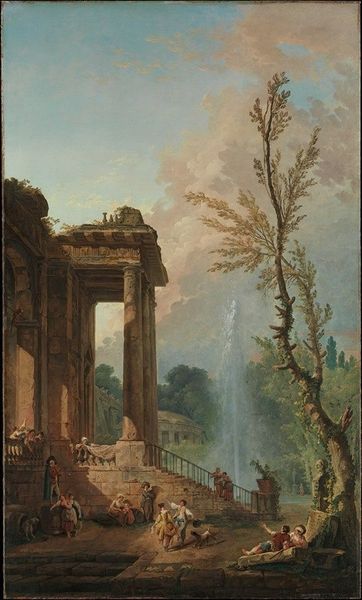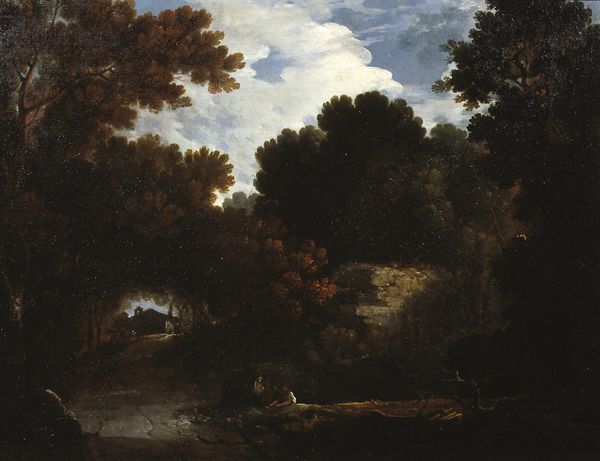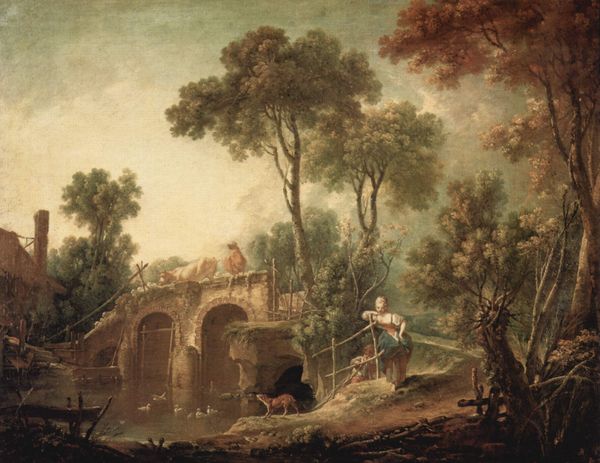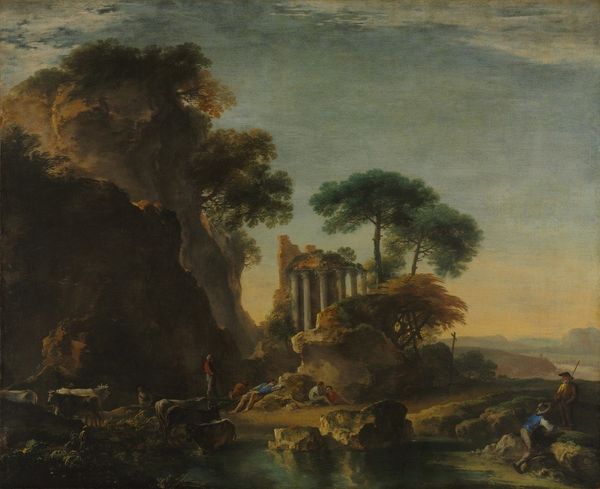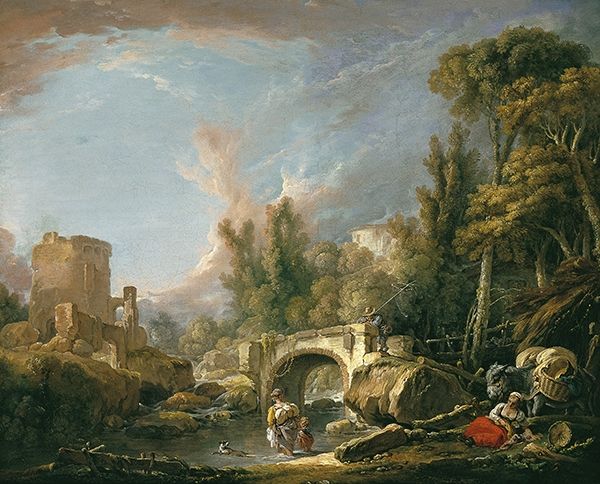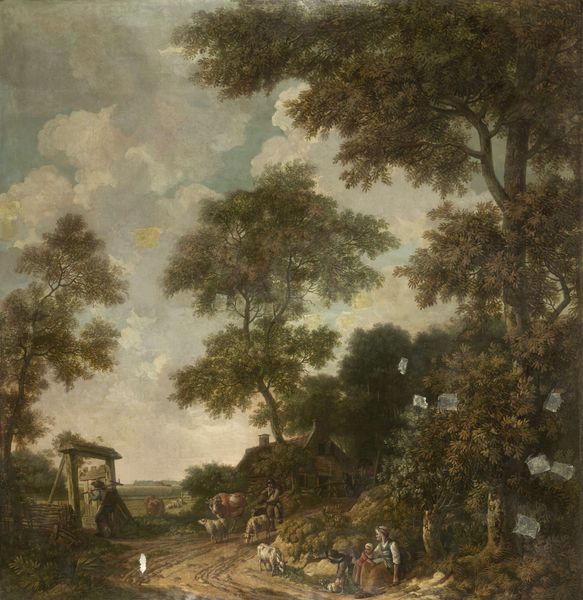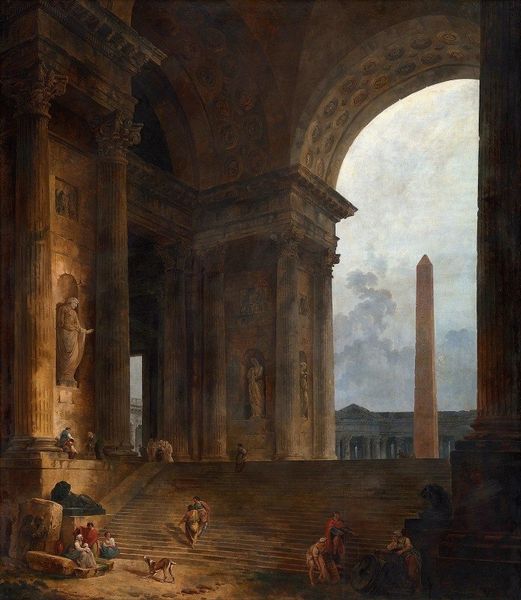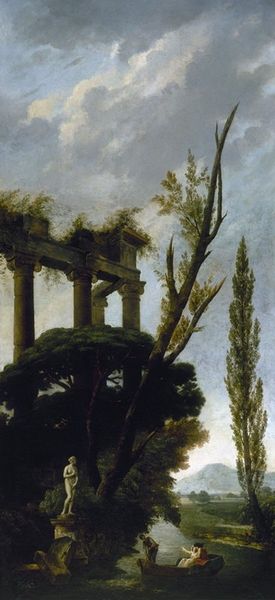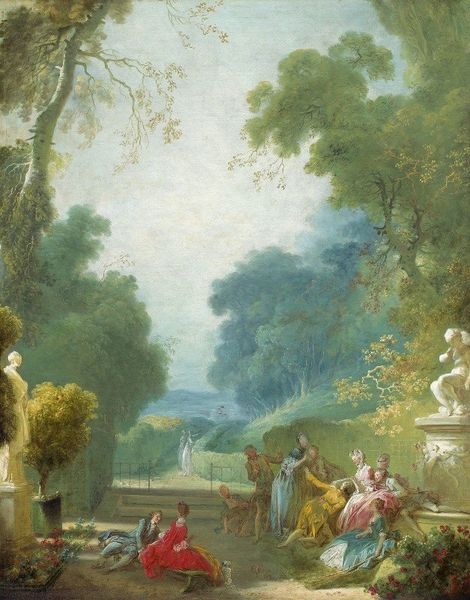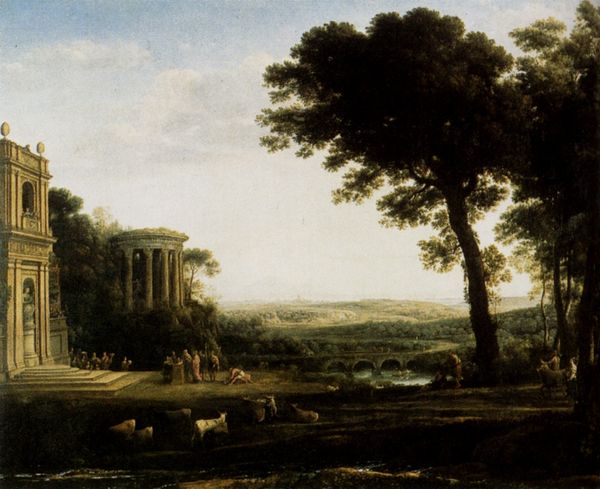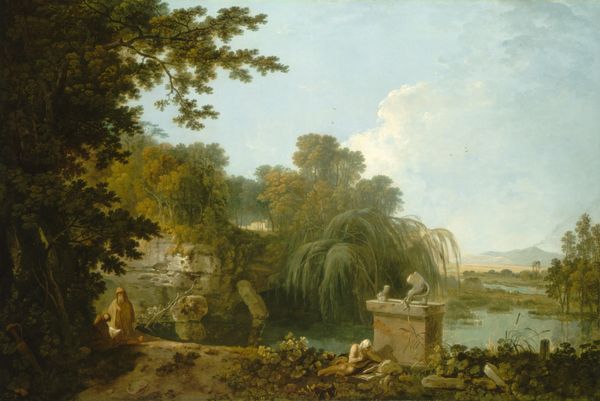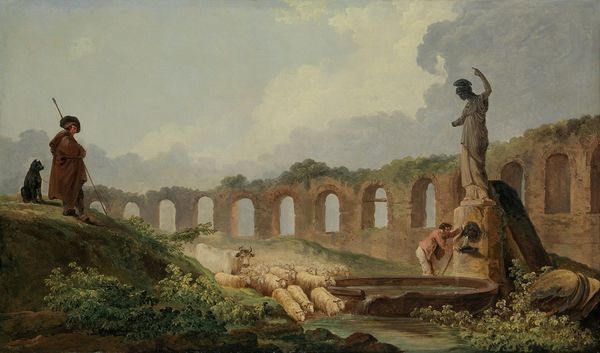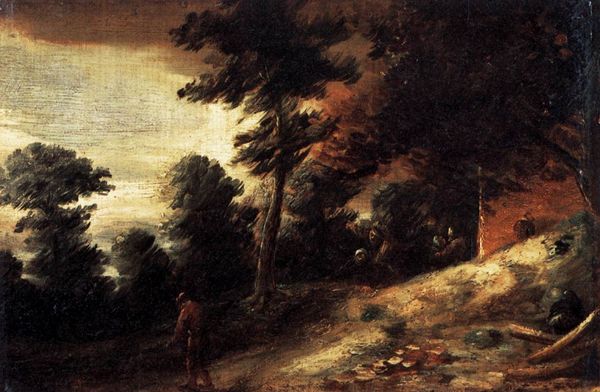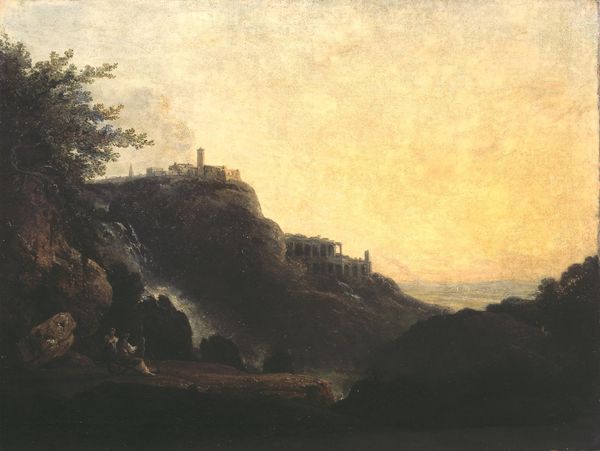
Copyright: Public Domain: Artvee
Curator: Here we have "The Cascade," an oil painting created around 1775 by Jean-Honoré Fragonard. What is your first impression of it? Editor: Immediately, I see a structured, almost theatrical composition. The interplay of light and shadow creates a very picturesque scene, don't you think? It’s not quite Realist. The cascading water serves almost like a proscenium for this carefully arranged group. Curator: I agree about the theatrical aspect, but I see beyond surface arrangement: note the use of the waterfall. Water is frequently used as a metaphor for purity and transformation, a cleansing, as it were, which hints at something more than mere pleasure. Also consider the architecture surrounding the waterfall and bathers; Fragonard has situated figures within a classic ruin in communion with nature and each other. Editor: A communion for an elite class, perhaps. Consider the setting – not some truly wild and raw landscape, but one meticulously curated. Fragonard’s placement of the architecture emphasizes the role of humanity ordering and containing nature; see how the strong vertical lines of the colonnade create a sharp contrast with the amorphous, free-flowing water? It brings attention to control over spontaneity, literally framed by classical structure! Curator: Yes, the classical ruin invokes an earlier Golden Age; however, what appears to be "control" is perhaps a yearning for natural simplicity—the scene projects nostalgia for a lost Eden, which is accessible through nature—or by participating within its carefully rendered beauty. Don't overlook that these classical images reference stories known to a learned and cultured people; even a staged performance like the one that is painted represents an attempt to recapture that mythological past and its values within the artistocratic context. Editor: A point well-taken, as the artistocrat’s context frames my interpretation of art. However, my emphasis on line, composition, and tension provides a rigorous lens on what this Rococo art truly signifies as opposed to how the wealthy classes consume and experience it. It's always about what art actually is regardless of our own nostalgia for what art history tells us it ought to be, right? Curator: I cannot but agree—may each generation view, think, and question artworks anew. Editor: Agreed; seeing together gives more light to seeing itself.
Comments
No comments
Be the first to comment and join the conversation on the ultimate creative platform.
